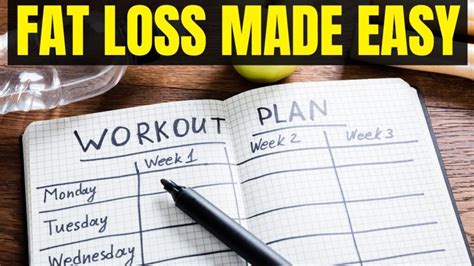Cracking the Code: Losing Belly Fat While Building Muscle
For many men, the quest for a sculpted physique involves the challenging dual objective of reducing belly fat while simultaneously building muscle. This process, often referred to as body recomposition, is entirely achievable with the right strategy. It demands a holistic approach that integrates intelligent training, precise nutrition, and smart lifestyle choices.

The Optimal Workout Plan: Strength First, Cardio Second
1. Prioritize Compound Strength Training
The foundation of any successful muscle-building and fat-loss plan for men should be heavy, compound strength training. These exercises work multiple muscle groups simultaneously, leading to greater caloric expenditure, increased muscle mass, and a higher resting metabolic rate. Aim for 3-4 full-body or upper/lower split weight training sessions per week.
- Key Exercises: Squats, Deadlifts, Bench Press, Overhead Press, Rows, Pull-ups/Lat Pulldowns.
- Rep Ranges: Focus on 3-5 sets of 5-10 repetitions for most exercises, lifting weights that challenge you significantly in the last few reps.
- Progressive Overload: Continuously strive to lift more weight, perform more reps, or increase time under tension over time. This is crucial for muscle growth.
2. Incorporate Strategic Cardio
While strength training builds the engine, cardio helps burn the fuel. The key is to integrate it without undermining muscle gains. High-Intensity Interval Training (HIIT) is highly effective for fat loss, while moderate-intensity steady-state cardio can aid recovery and overall cardiovascular health.
- HIIT: 2-3 sessions per week, lasting 15-25 minutes. Examples include sprints, battle ropes, cycling, or elliptical intervals.
- Moderate Cardio: 1-2 sessions per week, 30-45 minutes, at a comfortable pace (e.g., brisk walking, jogging).

The Optimal Diet Plan: Caloric Deficit with High Protein
Diet is paramount for both fat loss and muscle gain. To lose belly fat, you must be in a slight caloric deficit. To gain or preserve muscle during this deficit, a high protein intake is non-negotiable.
1. Establish a Moderate Caloric Deficit
A deficit of 300-500 calories below your Total Daily Energy Expenditure (TDEE) is generally optimal. Too large a deficit can lead to muscle loss and metabolic slowdown, while too small may not yield sufficient fat loss.
2. Prioritize Protein Intake
Protein is crucial for muscle repair and growth, and it also promotes satiety, helping to manage hunger during a deficit. Aim for 1.6-2.2 grams of protein per kilogram of body weight (or 0.7-1 gram per pound).
- Sources: Lean meats (chicken breast, turkey, lean beef), fish, eggs, dairy (Greek yogurt, cottage cheese), legumes, protein powder.

3. Smart Carbohydrate and Healthy Fat Choices
- Complex Carbohydrates: These provide sustained energy for workouts and replenish glycogen stores. Focus on whole grains (oats, brown rice, quinoa), fruits, and a wide variety of vegetables.
- Healthy Fats: Essential for hormone production and overall health. Include sources like avocados, nuts, seeds, olive oil, and fatty fish (salmon). Aim for 20-30% of your total daily calories from healthy fats.
4. Hydration and Micronutrients
Drink plenty of water throughout the day. Water supports metabolic functions, nutrient transport, and can help control appetite. Ensure your diet is rich in micronutrients from diverse fruits and vegetables to support overall health and performance.
Lifestyle Factors for Success
1. Adequate Sleep
Sleep is when your body recovers, repairs muscle tissue, and regulates hormones crucial for fat loss (e.g., ghrelin, leptin, cortisol, testosterone). Aim for 7-9 hours of quality sleep per night.

2. Stress Management
Chronic stress elevates cortisol levels, which can promote belly fat storage and hinder muscle growth. Incorporate stress-reducing activities like meditation, yoga, hobbies, or spending time in nature.
3. Consistency and Patience
Body recomposition is a marathon, not a sprint. Consistency in your workout routine, diet, and lifestyle choices is far more important than intensity in short bursts. Track your progress (photos, measurements, strength gains) and be patient; results will come over time.

Putting It All Together
The optimal plan for men to lose belly fat and gain muscle is a synergy of these elements. It’s about challenging your muscles with progressive overload, intelligently burning fat with cardio, fueling your body with a high-protein, calorie-controlled diet, and supporting recovery with ample sleep and stress reduction. Embrace the process, stay consistent, and you will see transformative results.




